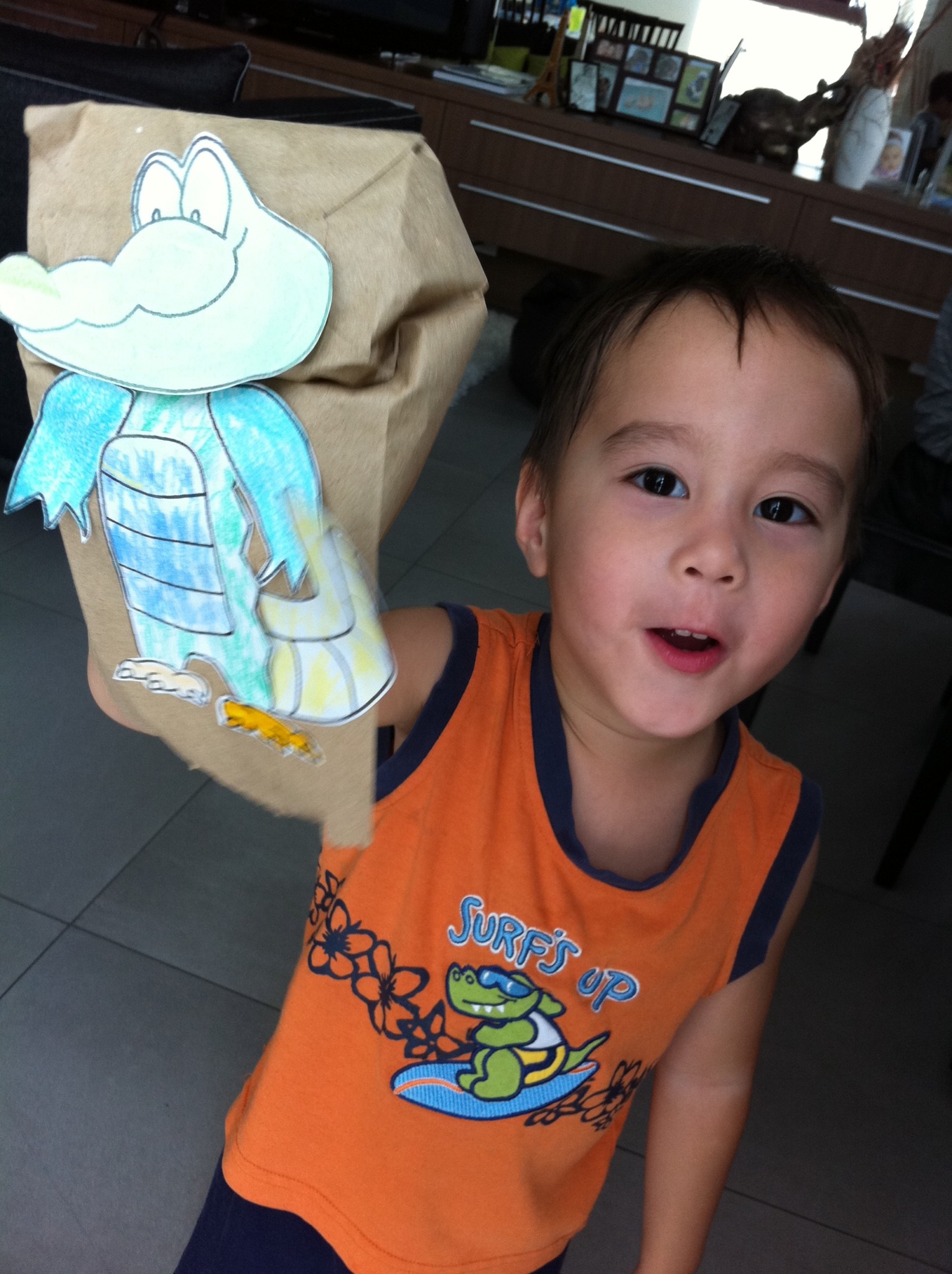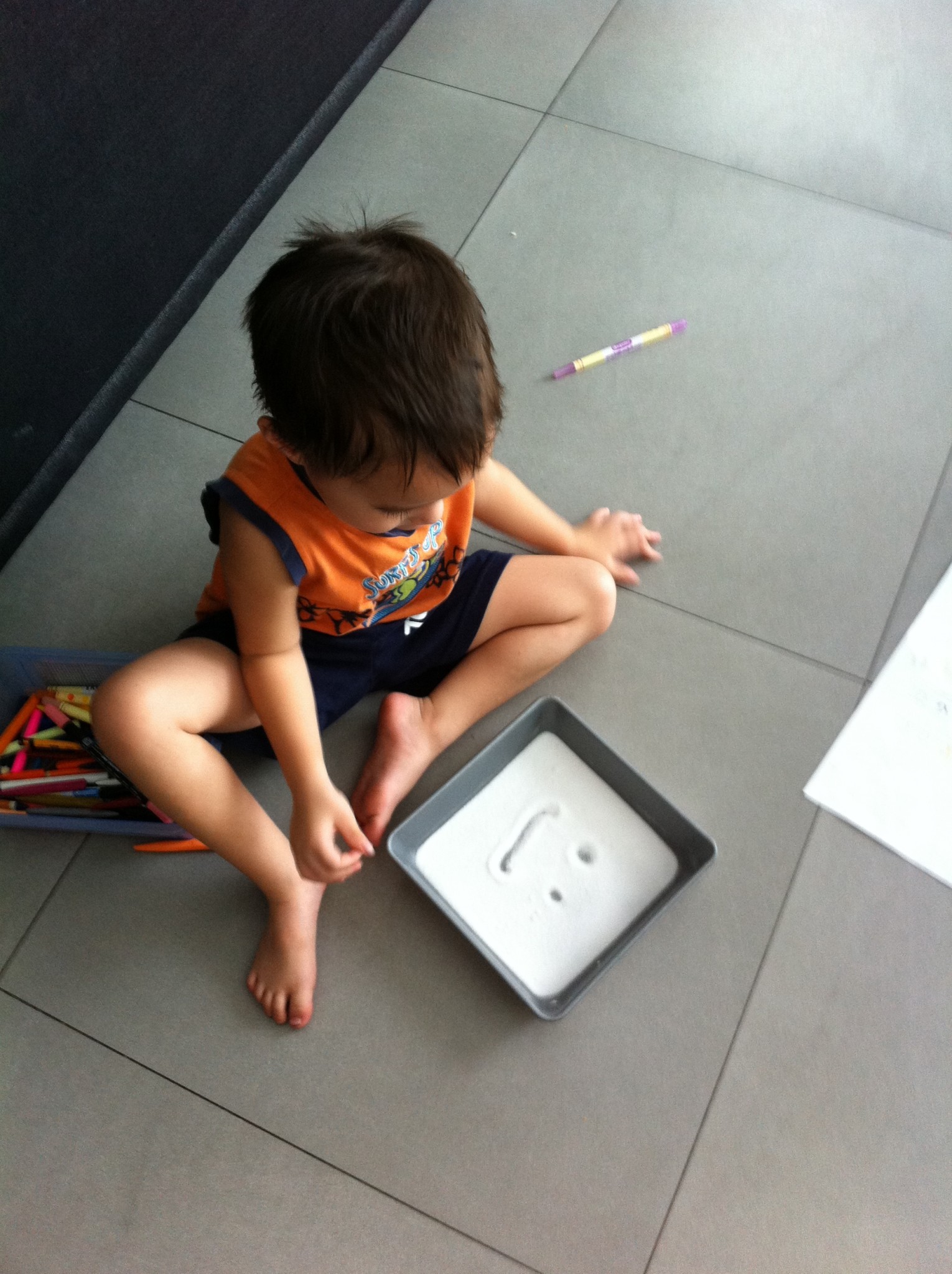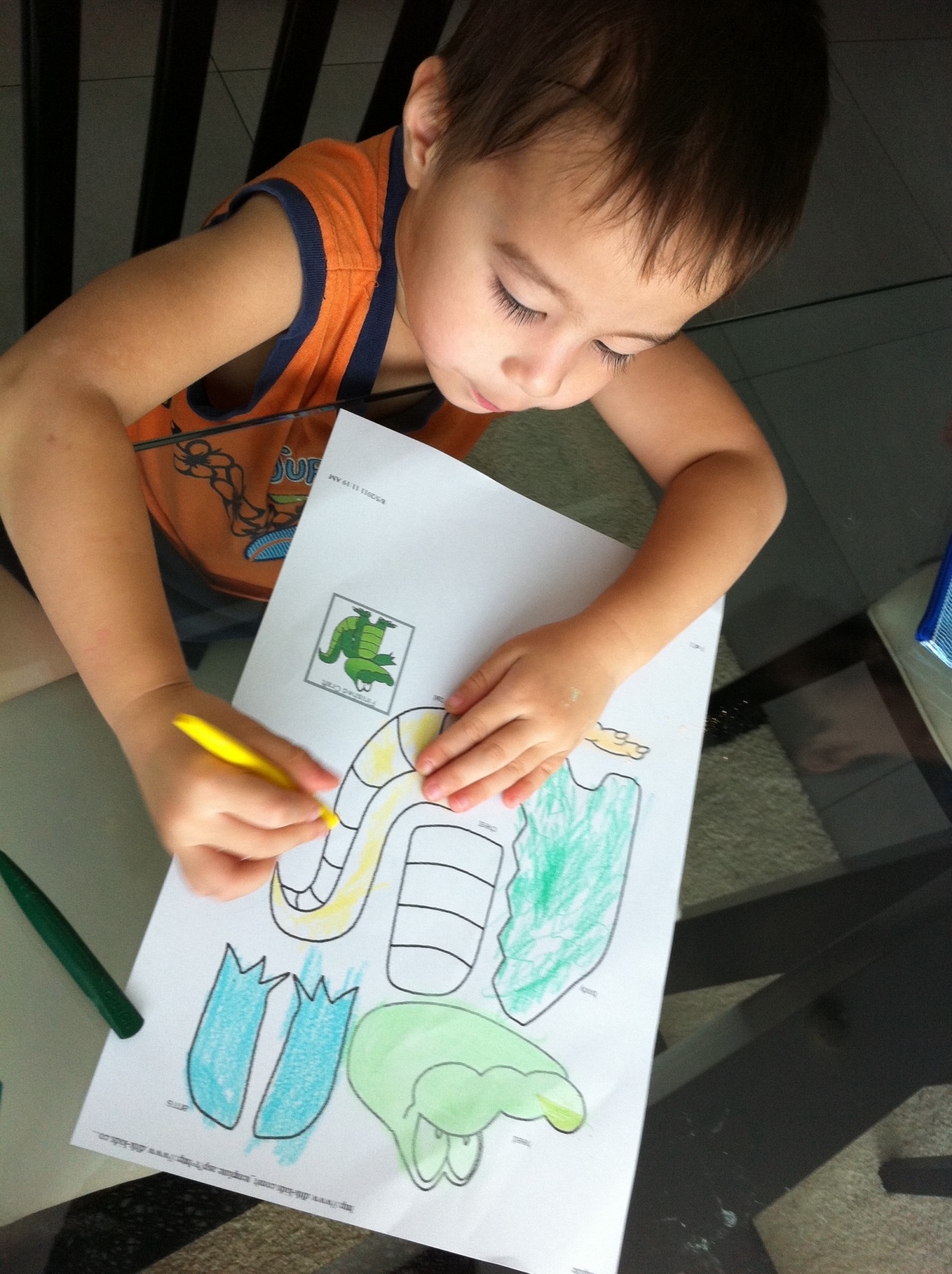I love this stage – a stage full of curiosity, wonder, exploration, and yes, accidents (from time to time). Learning at this period in a child’s life is explosive. They are so eager to know how things work, to ask questions, to get their hands into everything. I’ve had two older boys pass through this stage and now I have a third son going through it.
When my third son was three years old, he expressed interest to do “work.” Work in our home is what our kids use to describe their homeschooling. “Mom, can I do work?” Titus began to ask me in the mornings. Or, “Mom, where’s my work? I want to work like Elijah and Edan.” I took this to mean that he was ready and willing to start “formally” learning concepts.
Previously, I read to him and talked about concepts (like shapes, numbers, sizes, letters, etc.), but for the most part, his first three years of life consistent of a whole lot of play – the self-directed kind.
However, ever since he wanted to be part of our daily homeschooling, I decided on an approach that would appeal to him. He was bright like his brothers, but his learning style was more kinaesthetic – hands on, to be specific. Therefore, he did better when he handled concrete objects and was given opportunities to use his hands to learn.
Homeschooling made it possible for Titus to learn the way that best suits him. And this is the great thing about homeschooling. I have primary control over the methodology, content, and environment in which my children learn. If I were to send my children to a conventional school and entrust the responsibility of teaching them to an institution, the methodology, content, and environment in which they learn would be, for the most part, outside of my control.
Having primary control over these three factors is one of the reasons why I believe homeschooling is a superior education. Control allows me to customize my child’s education.
When people say to me, “Your kids are so intelligent. They know so much,” I think to myself, all kids are intelligent and all kids can know the same things my children do and more! The only academic advantage my kids have is a customized learning experience and a mom and dad who are willing to customize it for them. In fact, I know many remarkable kids who homeschool! While genetics may play a factor, more often than not, their remarkableness is determined by the manner and kind of instruction they receive.
With homeschooling toddlers, individualized instruction is the key. So in the beginning it seems like a lot of preparation and creativity, but once your child gets it, they will become more and more independent. Educator John Holt says, a good teacher will “work himself or herself out of the job.”[1] I have five kids. If all of them were dependent on me to learn and didn’t eventually become self-directed learners, I wouldn’t last as a homeschool mom.
Conversely, if my children are equipped to launch themselves and teach themselves, their capacity to learn will not be limited by me. My nearly fifteen year old, Elijah, teaches himself. He knows where to go to find the answers to his questions. His comprehension level is also very good which means I don’t have to explain new lessons to him every single time. If there is something he really can’t figure out or understand he knows I am available as a resource. However, his first option is to understand what he can on his own. Today, Edan, my eleven year old, and Titus, who is now nine, are also becoming very independent learners. They are able to complete most of their work without me having to explain everything to them all the time.
Back when Titus was three, he was learning pre-reading, pre-writing, and pre-math skills – the building blocks of every good education. Catalina, my four year old, is at this point.
My role at this age is to help my kids master skills that will help them become good readers, communicators, and problem solvers. Eventually, these skills will allow them to easily tackle a range of subject matter.
There are many checklists out there that are lengthier and more detailed, but I condensed them into the essentials. If parents want a more detailed checklist, they can refer to my growth checklist for ages 2 to 4. Growth Checklist _Ages 2 to 4_
ESSENTIAL PRE-READING SKILLS:
Reference – http://attachments.wetpaintserv.us/v6iT93$LhdHdev$aSSNl1Q%3D%3D61662
- Vocabulary – Knowing the name of things.
- Print Awareness – Noticing print, knowing how to handle a book and knowing how to follow the words on a page. (left to right)
- Letter Knowledge: Knowing letters are different from each other, knowing their names and sounds and recognizing letters everywhere. Sing, Spell, Read, and Write – Alphabet Song
- Phonological Awareness: Being able to hear and play with the smaller sounds in words. Titus and Pre-Reading Skills Part 1
- Print Motivation: Being interested in and enjoying books.
- Narrative Skills: Being able to describe things and events and tell stories.
Helpful Resources:
http://www.familylearning.org.uk/pre-reading_skills.html
http://www.time4learning.com/reading_skills_pyramid.htm
- Hand Muscle Strength (Ex. Being able to hold, squeeze, pinch, pull, push, press, etc.)
- Hand Dexterity and Hand-eye Coordination – Use hands to build and make things, manipulate objects like puzzles and toys, lace beads, tear paper, handle tools like measuring cups, spoon and fork, paint brushes, roll and pass a ball, etc.
- Drawing, Scribbling, Coloring, Tracing, Copying
- Hold A Pencil Properly
Helpful Resources:
http://www.rch.org.au/emplibrary/ot/InfoSheet_H.pdf
http://www.caot.ca/default.asp?pageid=3711
- Knows shapes and can identify shapes in his environment.
- Identifies numbers (1 to 10 or more) and understands that numbers are symbols that represent how many. For example: * * * is 3.
- Makes comparisons (ex. fewer or more)
- Understands positions (inside and outside, left and right, left, middle and right, above and below, top and bottom, under)
- Classifies based on attributes (ex. sorting by same color, same size, same texture, etc.)
- Can follow a simple sequence or pattern
- Familiar enough with local currency to identify 25 cents, 1 peso, ten pesos, etc.
- Differentiates between size (long and short, tall and short, light and heavy, holds more or less, wide and narrow)
Helpful Resources:
How much time do you need? If you set aside at least 30 minutes to 1 hour each day, you can create opportunities for your toddler to learn these skills.
Keep tasks short (between 5 – 10 minutes) and fun, and give lots of breaks. Concepts are best learned when a child is doing and given lots of opportunities to repeat and practice instead of just listening or watching. Of course, encouragement and positive reinforcement are very important as well!
I like how educator, John Holt, put it when he said, “We learn to do something by doing it. There is no other way. When we first do something, we probably will not do it well. But if we keep on doing it, have good models to follow and helpful advice if and when we feel we need it, and always do it as well as we can, we will do it better. In time, we may do it very well. This process never ends.” [2]
It does take some creativity and patience to homeschool the toddler stage, but it is a lot of fun!
Here are photos of Titus at age three. Sigh! I miss that chubby face on him!
[1] John Holt, Instead of Education (Sentinent Publications edition: Boulder, CO 2004), pg. 66
[2] Ibid, pg. 62
;





Hi Ms Joy!
Thank you so much for being so generous of your wisdom and teaching resources. I’m a young missionary mom and I have a very scarce pool of resources around me. I am so grateful that you freely and willingly share what you have through your blog.
I remember the Scripture that says, “Whoever sows sparingly reaps sparingly but whoever sows generously reaps generously.”
You have no idea how much you’ve blessed and encouraged me. Thank you for sowing into my life and my family generously by blogging your personal lessons, experiences and vast resources.
I pray that you and your whole family will REAP GENEROUSLY!